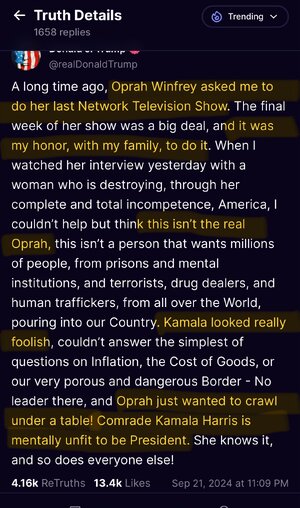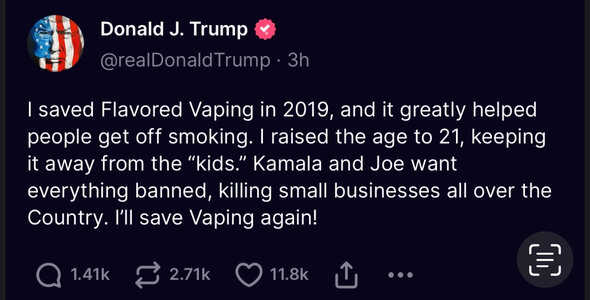Trump may not have Taylor, but sadly seems like he got Janet Jackson.
After five decades in the public eye, three marriages and the ‘wardrobe malfunction’ that torpedoed her career, the pop megastar is back. She opens up about family, fame and her fears of mayhem after the US election

www.theguardian.com
“On [the Rhythm Nation album], for us, it was about making a difference in a kid’s life, a teenager’s life, from them taking this path with drugs and going down the wrong street to trying to make something of themself.”
On that record she sang about “joining voices in protest to social injustice” and “pushing toward a world rid of colour lines”. I wonder where she stands on the forthcoming election. After all, I say, America could be on the verge of voting in its first black female president, Kamala Harris.
“Well, you know what they supposedly said?” she asks me. “She’s not black. That’s what I heard. That she’s Indian.”
She looks at me expectantly, perhaps assuming that I have Indian heritage.
“Well, she’s both,” I offer.
“Her father’s white. That’s what I was told. I mean, I haven’t watched the news in a few days,” she coughs. “I was told that they discovered her father was white.”
I’m floored at this point. It’s well known that Harris’s father is a Jamaican economist, a Stanford professor who split from her Indian mother when she was five. “My mother understood very well that she was raising two black daughters,” Harris wrote in her book The Truths We Hold.
The people who are most vocal in questioning the facts of Harris’s identity tend to be hardcore QAnon-adjacent, Trump-loving conspiracy theorists. I don’t think Jackson falls into that camp, but I do wonder what the algorithms are serving her. I start again. Harris has dual heritage, I say, and, given this moment, does Jackson think America is ready for her – if we agree she’s black? Or, OK, a woman of colour?
“I don’t know,” Jackson stage whispers. “Honestly, I don’t want to answer that because I really, truthfully, don’t know. I think either way it goes is going to be mayhem.”
She doesn’t think there will be a peaceful transition of power?
“I think there might be mayhem,” she falters. “Either way it goes, but we’ll have to see.”




